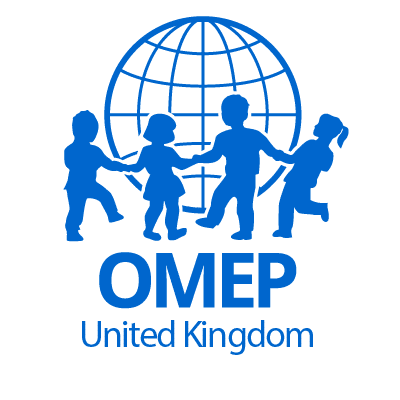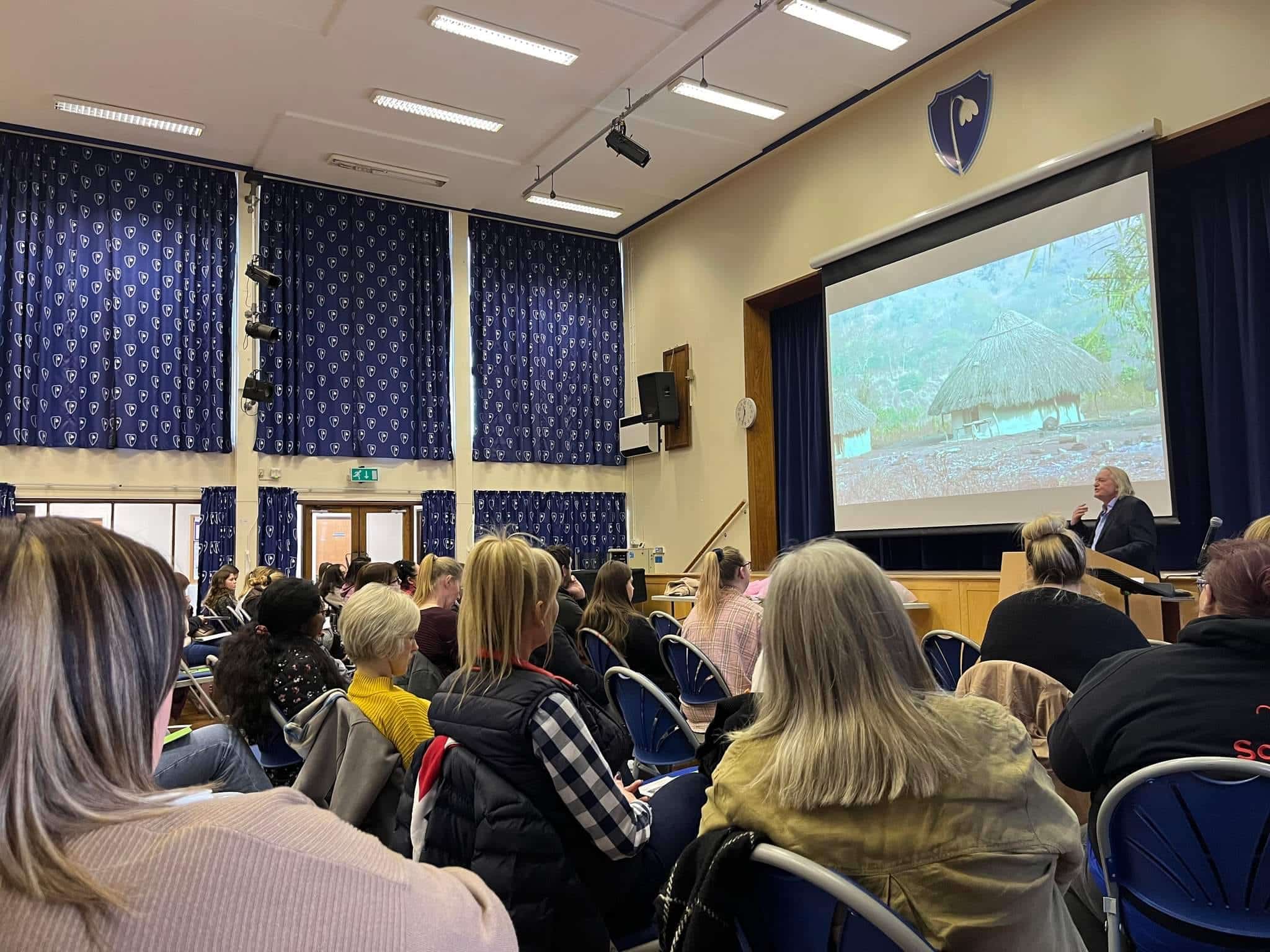Welcome to the OMEP Sustainable Citizenship Award!

GECCO provides accredited training and resources to support the OMEP UK Early Childhood Education for Sustainable Citizenship Award scheme (OMEP UK ESC Award).

Sustainable Citizenship

Background
Since the 2005 United Nations World Summit, it has become commonplace to refer to the “interdependent and mutually reinforcing pillars” of sustainable development as social and cultural sustainability, economic sustainability, and environmental sustainability. The challenge for early childhood educators has been to develop appropriate educational systems, curriculum and pedagogic practices that provide an appropriate early introduction to each of these areas of concern, and genuine experience of applying them together in sustainable practice. It is important to understand that these three pillars are mutually dependent and must act together, and that any practices and policies developed without taking each into account are likely to fail.
From the perspective of sustainable development, the most efficient or effective natural world’s, economic or social strategy may not be the most sustainable. Interdisciplinary decision making is crucial. Many authorities see good governance as another vital component that should be considered an additional ‘pillar’ for sustainable development. From an early childhood education perspective, these democratic concerns may be realised through the encouragement of more participation by the local community, by families and especially by the children themselves, in co-constructing the sustainability curriculum. It is for this reason, and in recognition of the UN Convention on the Rights of the Child which suggests that all children should have a voice in all matters that effect their lives, that we refer throughout these pages to Education for Sustainable Citizenship.
Sustainable Citizenship Award
A summary flyer for the OMEP UK Early Childhood Education for Sustainable Citizenship Award is available for download HERE. The Award was developed following work reviewing provisions for Early Childhood Education for Sustainable Development (ESD) applying the OMEP Environmental Rating Scale for Sustainable Development in Early Childhood (ERS-SDEC).The OMEP UK Early Childhood Education for Sustainable Citizenship Award is an initiative that was developed following work reviewing provisions for Early Childhood Education for Sustainable Development (ESD) applying the OMEP Environmental Rating Scale for Sustainable Development in Early Childhood (ERS-SDEC). This work was carried out by OMEP in ten countries: Chile, China, Kenya, Korea, Norway, Portugal, Sweden, Turkey, the UK, and the USA between 2010 and 2014. This work was published in 2016 and further details (including copies of the research instrument) are available for download HERE. The rating scale has been operationalised for the award scheme as a progressive series of self audit tools. The criteria applied audit and accreditation at the Bronze level are summarised HERE.
The OMEP Early Childhood Sustainable Citizenship Award has been developed to support a wide range of early childhood providers including childminders, preschools, and nurseries who are working with parents in supporting the objectives of Education for sustainable development in early childhood.
The scheme is organised around an ‘ESC Passport’ that is provided for each child. This document summarises the provisions of the United Nations Convention on the Rights of the Child (1989), and defines Sustainable citizenship as a life-long emergent capability.
The passport also provides discounted entry to wildlife conservation parks and other related community resources and services. (Note: Currently Suspended due to Pandemic)

Each child is able to collect up to 15 award stickers for entry into their passport, and these show their ESC achievements at Bronze, Silver and Gold level. To be awarded each sticker, parents and preschool practitioners work together to support the child in completing educational activities that range from the identification and naming of three wild birds, the identification of wildlife habitats, to the recycling of waste materials, and the recognition of cultural and linguistic diversity.
The activities are set at an appropriate level for the age group, they are based upon commonly available environmental resources, and provide the foundations of an education for sustainable citizenship that addresses all aspects of the United Nations Sustainable Development Goals.
A Pedagogy for Sustainable Citizenship
The natural ecological processes of early childhood learning and development demand that early childhood education is ‘child centred’ and personalised. A wide range of popular early learning models provide practical support for preschools in implementing this approach. Excellent practice is being developed through preschools that have adopted the approaches of Reggio Emelia, Montessori, Froebel, High Scope, SchemaPlay, In the Moment Planning and Play Responsive Teaching. At their best, in their different ways they each provide support for early educators concerned to support the child in their free-flow play while provocatively extending and seeding this play through the introduction of new resources, adult modelling, ideas or actions. A Path made in the Walking (Hindmarch and Boyd Eds., 2021) provides a useful (and free to download) introduction to such practice in the context of Forest School Education.
Lesson plans, large group activities and whole class teaching have marginal relevance to preschools. But that said, activities that have been planned to extend and support the learning of an individual or small group often provide important learning opportunities for the wider peer group of ‘vicarious learners’ in the preschool environment. In the context of learning language and literacy, we know that future learning outcomes are largely determined at an early age by the quality of the language and literacy environment that the child experiences in the home and preschool. Parent Partnerships and preschool support in developing the Home Learning Environment is crucial. The fact that this applies to every other aspect of the curriculum, and to education for sustainable development is less fully recognised but imperative. Children adopt the habits and behaviours of the adults that they grow up with, and it will always be our modelling of sustainable behaviours that is the most influential. The crucial role that parent’s and the wider community play in early learning and development provides a guiding pathway for education and schooling more generally. Our general approach to climate change education must therefore be multi-generational. As the African aphorism has it; ‘It Takes A Village to Raise a Child’.
GECCO is supporting further research and development in ecologically informed early childhood pedagogy and welcomes collaboration with training providers and academics in developing these practices. Contact us at gecco@gecco.org.uk or reach out via our Contact page
A Sustainable Citizenship Curriculum
The importance of Education in supporting the transition to a more sustainable society has been emphasised from the very earliest international development of the UN Sustainable Development Goals. Increasing emphasis has also been placed on providing a whole-school approach that ensure learning content and pedagogy are reinforced by the way that institutions are sustainably managed and inclusive decision making takes place. This holistic approach is strongly endorsed by UNESCO and The Greening Education Partnership (GEP) which was launched at the UN Transforming Education Summit in September 2022. The GEP Green School Quality Standards for school accreditation schemes were published in June 2024. The OMEP Early Childhood Education for Sustainable Citizenship Award scheme is aligned with these global standards and shares the GEP aim of showing that at least 50% of preschools achieve the global objectives by 2030. GEP has also developed Greening Curriculum Guidance which includes specific learning outcomes for children and student attainment from age 5 upwards.
GECCO provides checklists to support whole school development, and a Curriculum Checklist, has been developed, which, combined with the OMEP Award Audits, provide a comprehensive means of auditing your current curriculum provisions to support curriculum development planning. The checklist shows the learning objectives that are identified in the UNESCO Curriculum for children aged 5-8, and makes concrete suggestions of how these may be supported (foundations provided) in the pre-school period. GECCO provides aligned support, training and accreditation for the development for all of these areas to support accreditation at the Bronze, Silver and Gold levels of the OMEP UK Early Childhood Education for Sustainable Citizenship Award. For further information please contact us at: OMEP@gecco.org.uk
OMEP & GECCO Partnership
OMEP is an international non–governmental and non-profit organisation with Consultative Status at the United Nations and UNESCO. It was founded in 1948, to defend and promote the well-being and education of children. In the past two decades, early childhood education for sustainable citizenship has become central feature of this work.
For further information please contact us at: OMEP@gecco.org.uk
Tops Day Nurseries and Aspire Training team hosted our OMEP Conference on 29 January 2023.
Planning for this event started back in August 2022, when Dr John Siraj-Blatchford was invited to present to the Tops leadership at their office in Southbourne. According to Tops Day Nurseries, becoming OMEP day nurseries had been part of their long term plan – to provide sustainable education for the children attending Tops Day nurseries since SchemaPlay was introduced back in 2021. Now that SchemaPlay is embedded across the 32 day nurseries in the South Coast region, Tops is ready to rollout OMEP.

There are 2 distinct phases to becoming OMEP nurseries after training the assessors: the first is to complete an audit of all three pillars of sustainability at each nursery, and the second is to start to engage with the pre-school parents until at least 60% of the pre-school children and their parents are working on their knowledge and skills. Silver and gold awards come later. OMEP qualifications had been entirely paper driven before meeting with Tops, but Tops moved to e-communications some time ago with parents, and did not want to go back to paper nor to have plastic stickers in the logbooks, so a project to investigate how this could be done was started, whilst retaining that option for parents without access to computers or smart phones. To cut a long story short, the regular Tops e-providers “EyLog” were not able to support the move at that point, but they found a better option in “Thinkific” and “GoAudit”, and these were used to pilot OMEP awards within the team.

The first audits started after the January conference in February 2023, with a plan to do all 32 in 3 months. As soon as nurseries had received their audit they would begin to formulate an action plan to improve any areas that were not good already, in order to achieve their Bronze Awards, and to go on from there. In a stressed world of scarcity of money, time and staff, concerns were raised that it was hard enough to operate without an additional burden of a new award, but because the award is integral to sustainability, Tops felt that the advantages to those staff, children and parents afforded by engaging would be massively compensated for their time, and could indeed support those striving to provide outstanding nursery education and care. Once the nurseries achieve all goods, or Bronze for their environments and policies in all 3 areas, colleagues would begin to engage with parents and children – and Tops would let you know how that goes! Eylog are now looking again at enabling Tops to have OMEP and SchemaPlay on their platform, and Tops is also investigating whether Family’s free “Creating a curriculum in the EYFS” might work as well, because although OMEP is being piloted at Tops, the plan is to make it widely available throughout the sector once the wrinkles have been worked out in the software, and the funding of the project becomes available.


